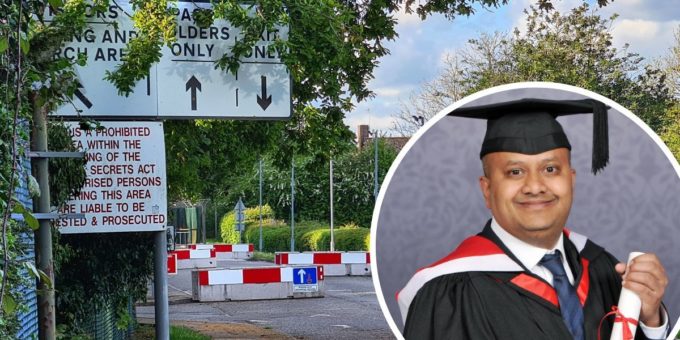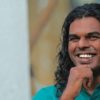
A former human rights worker who was offered sanctuary in York after fleeing torture and persecution in his native Bangladesh has added his voice to the growing chorus of condemnation of the government’s plans for asylum seekers.
William Gomes, who came to the University of York’s Centre for Applied Human Rights in 2012 under its ‘human rights defenders’ programme, said the government’s plans, which include placing 1,500 male asylum seekers in a centre at the former RAF Linton-on-Ouse while they await the outcome of their asylum applications, and sending others to Rwanda, was ‘racist’.
“This is unfair,” he said. “These people are fearful, they have fled their country, they have been traumatised. They need help. But this (Linton) is not a place where they can get help. They are victims, and they are being re-traumatised.
William Gomes
“This is politically motivated. Sending people to Rwanda is a racist government policy.”
The Home Office issued a strongly-worded response to Mr Gomes’ claims, however, insisting that critics of the proposals had ‘no credible alternative’.
“We maintain the site is urgently needed to provide essential asylum accommodation and will assist as we end the use of asylum seekers using hotels which are costing the taxpayer almost £5million a day,” a Home Office spokesperson said.
“While critics of the Migration and Economic Development Partnership profess to care about the lives of those who are exploited by criminals while offering no credible alternative to our plan, the UK and Rwanda are taking the bold decisions as equal partners to fix the broken system.”
According to Human Rights Watch’s 2012 world report, Mr Gomes, who worked for the Asian Human Rights Commission in his native Bangladesh, was picked up by plainclothes Bangladeshi security officers in May 2011.

He was taken to what his abductors described as their ‘headquarters’, Human Rights Watch said. “Then he … had his hands and legs cuffed, was forced into stress position, and was verbally abused and threatened with physical torture. He was interrogated about his work documenting human rights violations.”
After being released, Mr Gomes was nominated for a visiting ‘human rights defender’ scholarship at the University of York, and arrived in 2012.
It was, he says, a ‘unique and life-changing opportunity; it provided me with a chance to rest, which was badly needed, and a chance to heal from trauma; on top of that, it allowed me to learn from world-leading experts in human rights’.
Mr Gomes’ family followed him to the UK after he had been here a year. He applied for asylum on the grounds that he would be unsafe if he returned to his own country, and his application was successful.
Ten years on he still lives in York, and is now a British citizen with a masters degree in refugee care who is studying online for a Ph.D in racism and racial trauma with the University of Essex.
He says that after coming to York he and his family did experience some harassment. But the vast majority of York people had been welcoming, he said.
“York is a city of love and hope, which continues to shed light for many like me from different parts of the world – recently Ukrainian, Afghanis, Syrians, and people from Hong Kong. The list is long. I hope this great city of York continues to be known for giving hope and love and kindness and compassion to all who need it.”












